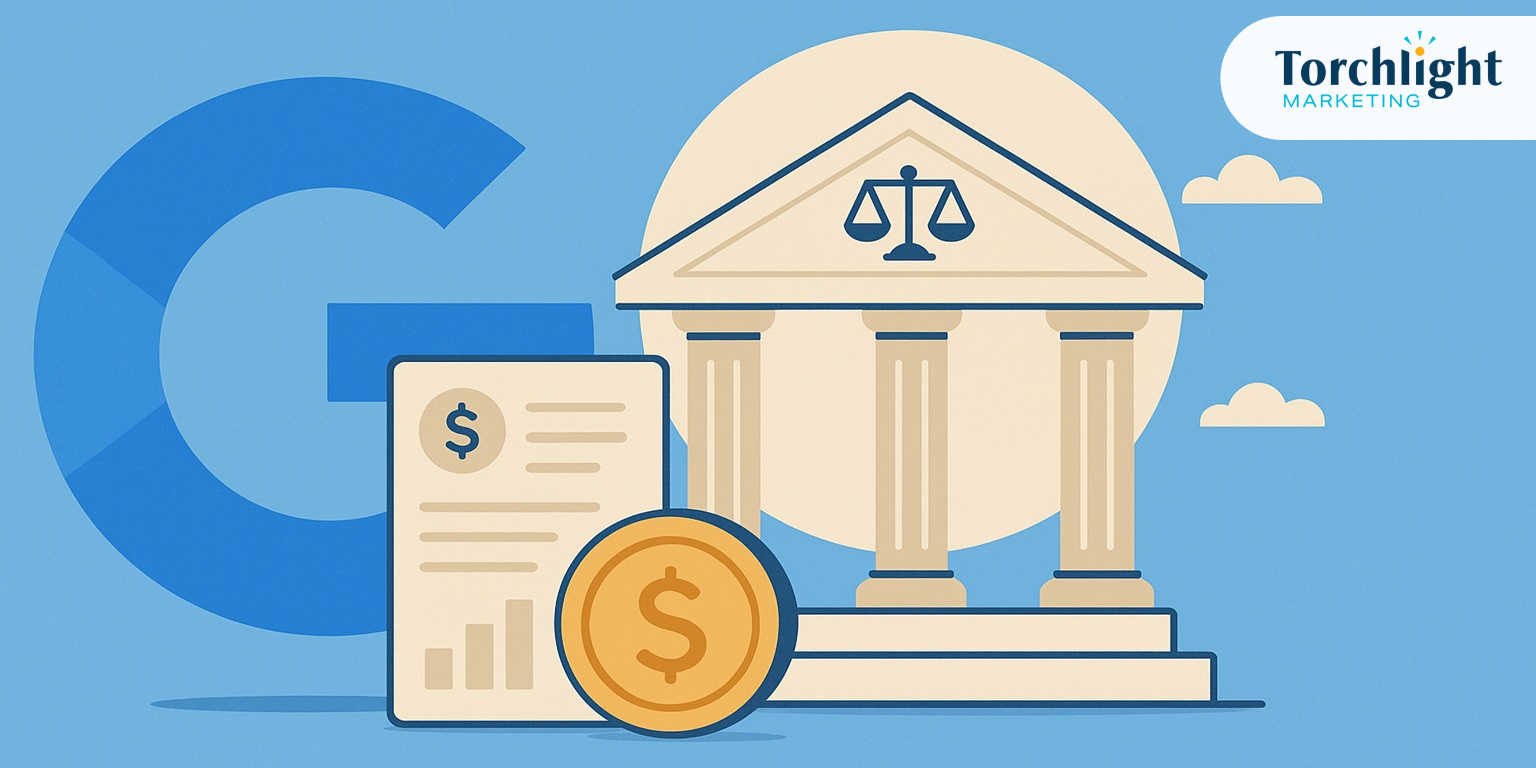At Torchlight, we keep a close eye on developments that could impact advertisers—especially when it involves how platforms like Google handle ad performance and billing. That’s why we wanted to break down a recent $100 million lawsuit settlement involving Google Ads and explain what it could mean for businesses like yours.
In a move that’s drawing attention across the marketing world, Google has agreed to pay $100 million to settle a class action lawsuit. The case stems from claims that advertisers were overcharged through Google’s AdWords platform (now Google Ads) between 2004 and 2012.
A Quick Recap of the Lawsuit
Filed back in 2011, the lawsuit alleged two key issues:
- Geographic Targeting Issues – Advertisers were charged for clicks that came from outside the locations they had specifically targeted.
- Smart Pricing Manipulation – Google allegedly used a pricing formula that reduced the discounts advertisers expected to receive for certain clicks.
Google has denied any wrongdoing but has agreed to the settlement to resolve the matter. The class action applies to advertisers who used AdWords between January 1, 2004, and December 13, 2012.
Who’s Eligible?
Two main groups of advertisers are included:
- Location Targeting Class: Advertisers who paid for clicks from outside their chosen geographic areas between Jan 1, 2004 – Mar 22, 2011.
- Search Bundled Clicks Class: Advertisers who ran ads across both the Search and Display Networks (without setting different bids) between Jun 1, 2009 – Dec 13, 2012.
If that sounds like it might apply to you, it’s worth checking your eligibility.
What You Can Do
If you’re part of either class and want to receive a payment:
- Submit a Payment Form by July 20, 2025
- If you previously opted out, you can opt back in by the same deadline
- You can also object to the terms or attend the final hearing on August 21, 2025
If you’re eligible, you may have already received a notice in the mail or by email. But even if you didn’t, you can still claim your portion by verifying your eligibility using the Google account (Google Ads ID) you used during that time period. The claim form on the official settlement site walks you through it.
🔗 Visit the official Google Ads Settlement Website to learn more, submit a claim, or read the full legal details.
Why This Matters Now
While the lawsuit focuses on older ad practices, it’s a good reminder of why transparency matters in digital advertising. At Torchlight, we keep a close eye on things like geographic targeting, bidding accuracy, and platform accountability—because your campaigns should work the way you expect them to.
We’re not involved in the claims process, but if this news has you thinking more critically about your past or current ad performance, we’d love to hear from you. Whether you’re curious how things have changed since then or want to talk through how your strategy is working today, we’re always happy to connect!


